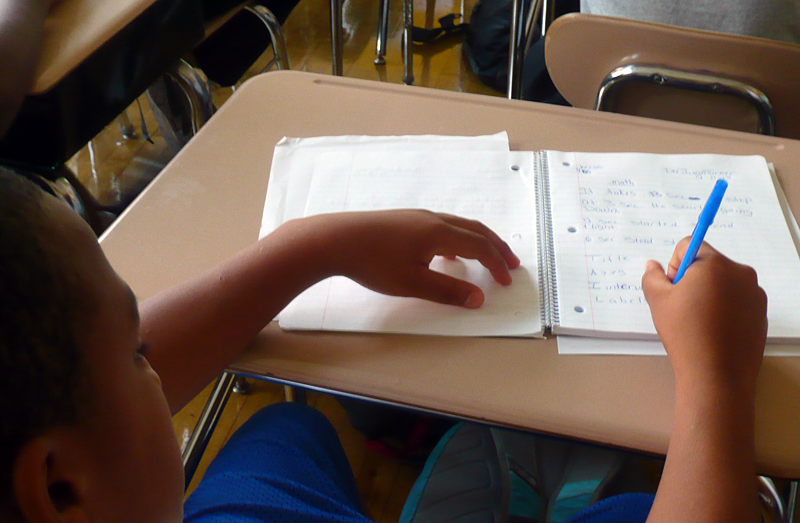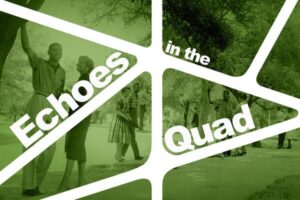
After-school and summer programs can help more students learn to embrace numbers and become ‘math people’ after all
As a teacher, I heard it all the time: “I’m not a math person.”
I would be in line at the grocery store, wearing a math T-shirt one of my students got for me, and I’d hear it: “Algebra? Who needs it?”
I would ask the person if they’d shopped with a coupon, bought a cheaper store brand, looked at the unit price on toilet paper or if they’d mentally calculated their total before heading to the checkout line.
I’d smile and say — “All of that is algebraic thinking.”
Despite my assurances, the idea that “I am just not into math” was, and still is, pervasive. Sometimes the thought comes from students, often from parents or colleagues, and more often than not it is said with a kind of resignation — as if math were a club you either got into early or missed forever.
That mindset has never been more insidious than it is now, when mathematics knowledge is needed more than ever. Every day we rely on math to interpret data, whether it’s tracking public health trends, forecasting weather, making financial decisions or navigating technology.
Related: A lot goes on in classrooms from kindergarten to high school. Keep up with our free weekly newsletter on K-12 education.
The ability to reason quantitatively, spot patterns and make decisions based on evidence has become integral to how we all navigate the world. Yet recent national data shows we’re falling short. Fewer than one in three eighth graders are on grade level in math, according to the latest National Assessment of Educational Progress scores.
Across nearly every industry, from agriculture to aerospace, mathematical reasoning is becoming more essential. Employers across sectors increasingly need people who can interpret data, test ideas and solve unfamiliar problems.
If we want more young people to access these growing opportunities, we need to rapidly expand access to the after-school and summer programs that help them develop the confidence and curiosity to build math skills.
Right now, too many young people are missing out. After-school and summer learning programs are rarely included in state or federal improvement plans, even though research shows that they are proven to reinforce classroom learning and build student confidence.
In addition, educators in these programs could benefit from training and resources to help young people connect more fully with math.
With the right support from funders and policymakers, these challenges can be addressed, and millions more students can build the math skills they’ll need. Every student deserves the chance to build confidence in math, not just those who excel early.
The stakes are far too high to keep throwing the same solutions at the problem. We need to think differently — not just about how we teach math, but how and where young people experience it.
After-school and summer programs give young people a chance to engage with math in low-pressure settings that don’t feel like an extension of school. They aren’t bound by curriculum or high-stakes test prep.
In these programs, educators can naturally bring math into real-life experiences — budgeting for a community project, designing a video game, planning the route for a field trip or understanding the data behind a favorite sport or song.
These programs also create opportunities to engage families in everyday math and to elevate older youth as peer mentors or tutors — making math feel more personal, social and relevant.
Out-of-school experiences mean students aren’t expected to memorize a formula before they can explore an idea. They’re encouraged to ask questions, try things out and see what happens.
And, importantly, they can take time to try, reflect and try again, without fear of being wrong.
Related: A lot of hope was pinned on after-school programs — now some are shutting their doors
When mistakes are treated as part of the mathematical reasoning process, students start to take more risks. They begin trusting themselves to navigate challenges, which builds their confidence.
That shift is especially important for students who have internalized the message that math isn’t for them, and it will carry them much further than an emphasis on better test scores and grades.
At STEM Next, we’re working to foster that shift by supporting after-school and summer programs, training informal educators and strengthening the learning environments where math confidence takes root.
Our recent publication offers a closer look at how after-school and summer programs are helping students experience math differently, and why that shift matters now more than ever.
Expanding access to these programs isn’t just to help kids grow math skills today, it’s a long-term investment in our workforce and our future.
Camsie McAdams is director of the Institute for a STEM Ready America at STEM Next Opportunity Fund.
Contact the opinion editor at opinion@hechingerreport.org.
This story about after-school programs was produced by The Hechinger Report, a nonprofit, independent news organization focused on inequality and innovation in education. Sign up for Hechinger’s weekly newsletter.
Source link



